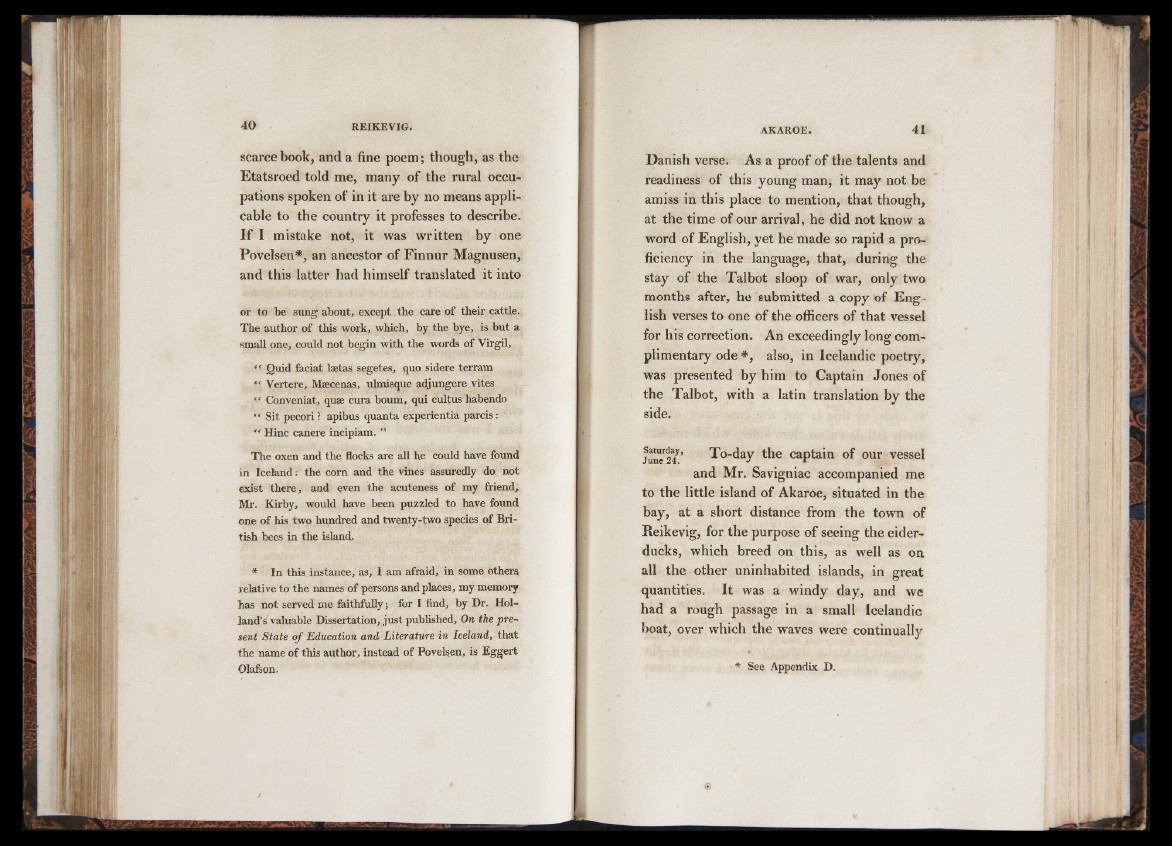
scaree book, and a fine poem; though, as the
Etatsroed told me, many of the rural occupations
spoken of in it are by no means applicable
to the country it professes to describe.
I f I mistake not, it was written by one
Povelsen*, an ancestor of Finnur Magnusen,
and this latter had himself translated it into
or to be sung about, except the care o f their cattle.
The author of this work, which, by the bye, is but a
small one, could not begin with the words of Virgil,
'< (Quid faciat laetas segetes, quo sidere terram
“ Vertere, Maecenas, ulmisque adjungere vites
v Conveniat, quae cura boum, qui cultus habendo
“ Sit pecori ? apibus quanta experientia parcis:
“ Hinc canere incipiam.
The oxen and the flocks are all he could have found
in Iceland: the corn and the vines assuredly do not
exist there, and even the acuteness of my friend,
Mr. Kirby, would have been puzzled to have found
one of his two hundred and twenty-two species of British
bees in the island.
* In this instance, as, I am afraid, in some others
relative to the names of persons and places, my memory
has not served me faithfully j for I find, by Dr. Holland’s
valuable Dissertation, just published, On the pre~
sent State of Education and Literature in Iceland, that
the name of this author, instead of Povelsen, is Eggert
Olafton.
Danish verse. As a proof of the talents and
readiness of this young man, it may not be
amiss in this place to mention, that though,
at the time of our arrival, he did not know a
word of English, yet he made so rapid a proficiency
in the language, that, during the
stay of the Talbot sloop of war, only two
months after, he submitted a copy of English
verses to one of the officers of that vessel
for his correction. An exceedingly long complimentary
ode *, also, in Icelandic poetry,
was presented by him to Captain Jones of
the Talbot, with a latin translation by the
side.
June 24^ To-day the captain of our vessel
and Mr. Savigniac accompanied me
to the little island of Akaroe, situated in the
bay, at a short distance from the town of
Reikevig, for the purpose of seeing the eider-
ducks, which breed on this, as well as on
all the other uninhabited islands, in great
quantities. It was a windy day, and we
had a rough passage in a small Icelandic
boat, over which the waves were continually
* See Appendix D.